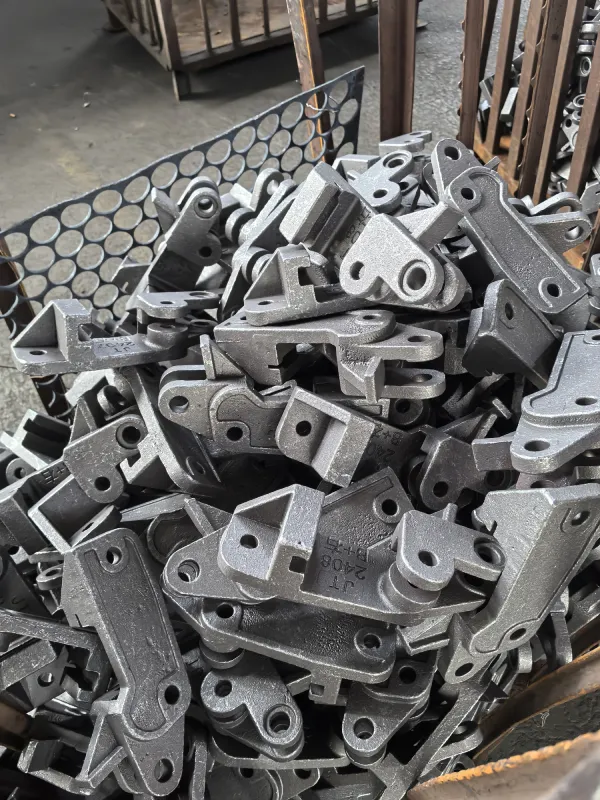Oct . 01, 2024 11:00 Back to list
Aluminum Can Recycling Process for Efficient Melting and Remanufacturing Techniques
The Importance of Aluminum Can Melters in the Recycling Process
Aluminum cans are among the most widely recycled products in the world. These lightweight containers have become a staple in the beverage industry, but their environmental impact can be significant if not properly managed. One of the key elements in the recycling process of aluminum is the aluminum can melter, a crucial technology that transforms used cans into raw material for manufacturing new products.
Aluminum recycling is not just about reducing waste; it is about conserving natural resources and minimizing energy consumption. The extraction and processing of aluminum from raw bauxite ore are incredibly energy-intensive, requiring approximately 95% more energy compared to recycling. This is where aluminum can melters play a pivotal role. They enable the recycling industry to efficiently melt down used aluminum cans and repurpose them as high-quality aluminum for new products.
The operation of an aluminum can melter is fairly straightforward. First, used aluminum cans are collected, cleaned, and processed to remove any contaminants such as labels and residue. Once the cans are ready for melting, they are fed into the melter, where they are heated to temperatures exceeding 1300 degrees Fahrenheit. At this temperature, the aluminum melts and is transformed from solid to liquid form. The molten aluminum is then collected and can be cast into ingots or other shapes, ready to be used in manufacturing processes.
One of the key advantages of using aluminum can melters is their efficiency. Modern melting technologies have significantly improved the performance and energy consumption of these machines. Many can melters are designed to recover heat from the melting process, therefore minimizing overall energy needs and reducing greenhouse gas emissions. This process not only bolsters sustainability but also lowers operating costs for recycling facilities.
aluminum can melter

Moreover, aluminum recycling through melters ensures that the metal maintains its quality. Unlike some other materials, aluminum can be recycled indefinitely without losing its properties. The quality of recycled aluminum is comparable to that of virgin aluminum, making it a valuable resource for manufacturers. This quality retention encourages more companies to use recycled aluminum in their products, further stimulating the recycling economy.
The role of aluminum can melters extends beyond just environmental benefits. They contribute to job creation in the recycling sector and promote responsible waste management practices. As the demand for sustainable practices increases globally, the importance of efficient recycling operations becomes clearer. Melters help meet this demand while supporting local economies by processing materials that would otherwise end up in landfills.
Challenges do exist in the aluminum recycling process, such as fluctuating market prices for aluminum and competition with more inexpensive materials. However, the overall value of aluminum recycling remains high due to its energy savings and reduced environmental impact. With innovations in melting technology and increased public awareness about the benefits of recycling, aluminum can melters will likely play an even more prominent role in future sustainability efforts.
In conclusion, aluminum can melters are fundamental to the recycling process, transforming discarded cans into valuable raw material. Their ability to conserve energy, support high-quality production, and contribute to economic growth makes them indispensable in the quest for a greener planet. As we continue to grapple with environmental challenges, investing in aluminum recycling technologies and melters can pave the way toward a more sustainable future. Encouraging proper recycling habits among consumers and ensuring that facilities are equipped with advanced aluminum can melters will help maximize the benefits of recycling and protect our environment for generations to come.
-
Durable Centrifugally Cast Iron Water Main Pipe
NewsAug.11,2025
-
Centrifugally Cast Iron Water Main Pipes for Reliability
NewsAug.10,2025
-
High-Quality Centrifugally Cast Iron Water Main Pipes
NewsAug.09,2025
-
Durable Cast Iron Water Main Pipe & Drainage Solutions
NewsAug.08,2025
-
Buy Cast Iron Pipe: Premium Ductile Iron & Drain Solutions
NewsAug.07,2025
-
Durable Cast Iron Water Main Pipe | Buy Ductile Pipe
NewsAug.06,2025


